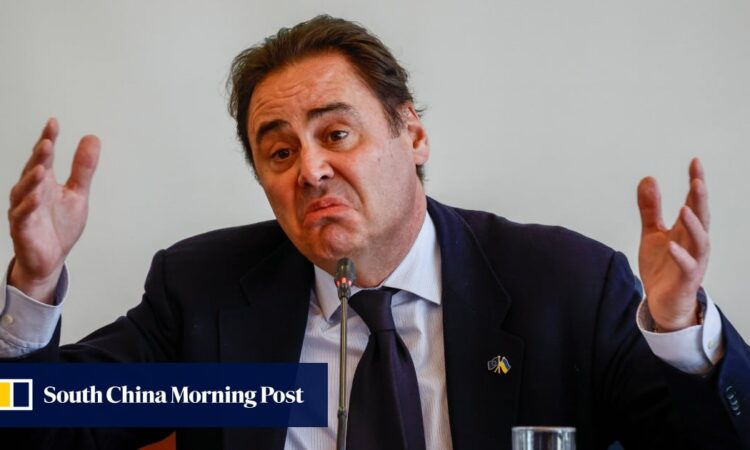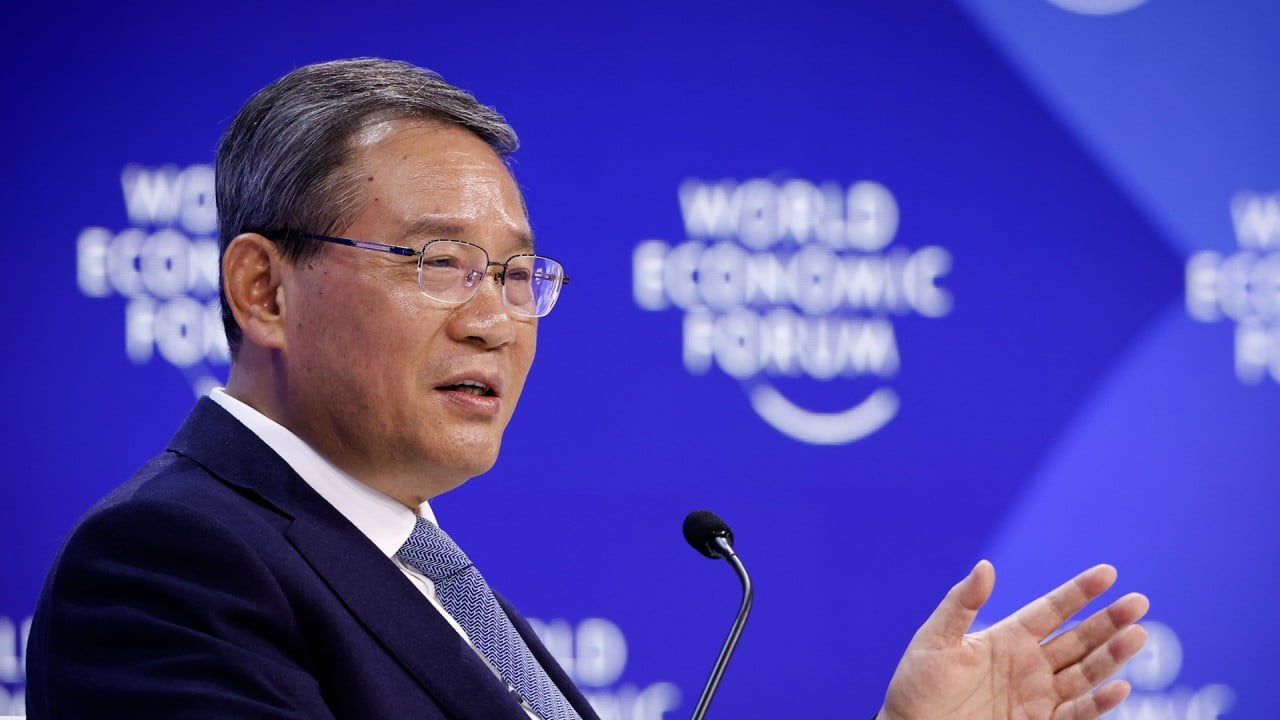
“The increased obsession with national security can be seen everywhere, cameras everywhere with facial recognition. The need, and this is quite recent, for state and party cadres, officials, to get clearance for meeting foreign diplomats – that was not happening a few years ago.”
This level of control has extended to academia post-Covid, the Spanish diplomat said.
“You cannot freely enter universities in China any more. Students and professors in universities and Chinese members of think tanks need authorisation to meet us, and this we did not expect, and it’s gradually increasing,” he said.
“We all thought that after four years of depressed economic activity, especially 2022, it would be a year of strong rebound. Well it hasn’t happened.”
In a poll of experts conducted by MERICS and released on Wednesday, 67 per cent of respondents thought that the “securitisation of everything with the trade-off of growth and infliction of social costs” was the most likely course for the Chinese government to take in 2024.
Foreigners who stayed during China’s Covid lockdowns are now leaving. Why?
Foreigners who stayed during China’s Covid lockdowns are now leaving. Why?
Toledo’s remarks and the survey results are at odds with the sense of stability and openness Chinese Premier Li Qiang has been projecting on a tour of Europe this week.
At the World Economic Forum in Davos on Tuesday, Li appealed to “business leaders” and “old friends” in the room by telling them the Chinese market “is not a risk, but an opportunity”.
“China remains firmly committed to opening up, we will continue to create favourable conditions for the world to share in China’s opportunity,” Li said.
The premier also delivered a strident defence of China’s economic recovery, citing official figures of 5.2 per cent growth for 2023 which were confirmed on Wednesday.
Li reiterated the message in Dublin on Wednesday, during a meeting with Irish President Michael D. Higgins.
“Both sides should work together to uphold a free and open international trading system and maintain the stable and smooth flow of global industrial and supply chains,” Li was quoted as saying by Xinhua.
Toledo, however, questioned the veracity of China’s rebound. He pointed to the downturn in the country’s real estate market and the fact that “consumption is not going up as expected” as red flags.
“Some analysts don’t believe it,” Toledo said. “To grow at 5.2 per cent, we question [it] and see what happens.”
Eva Valle Lagares, the EU’s top trade official for China, added that: “If China doesn’t rein in its imbalances … [they] will continue to create problems in the open economies of the world”.
Speaking at the same event, Lagares said any reform in the Chinese economy was likely to favour local operators.
“The reforms are not about opening up, they are more about control. So I do see a continuation of the existing asymmetry of market access in terms of investment. I also see a continuation of policies that have been serving well, protecting their domestic market to promote this self sufficiency and build these national champions.”
EU moves toward outbound investment screening, amid China concern
EU moves toward outbound investment screening, amid China concern
The bloc is currently probing subsidies in China’s electric vehicle sector, while further probes have been rumoured in areas like wind turbine components and solar panels.
Toledo said that post-Covid China had become a “leader and it has the best supply chains when it comes to electric vehicles and renewables”.
“The downside is that this has led to overcapacity and collapse in prices and the threat, [one] that can be projected into the future, is that … China will start flooding the market at incredible prices.”
“It will have more influence in five years. If our markets and investment sectors are flooded by Chinese products, that will have more impact in the next European election.”







